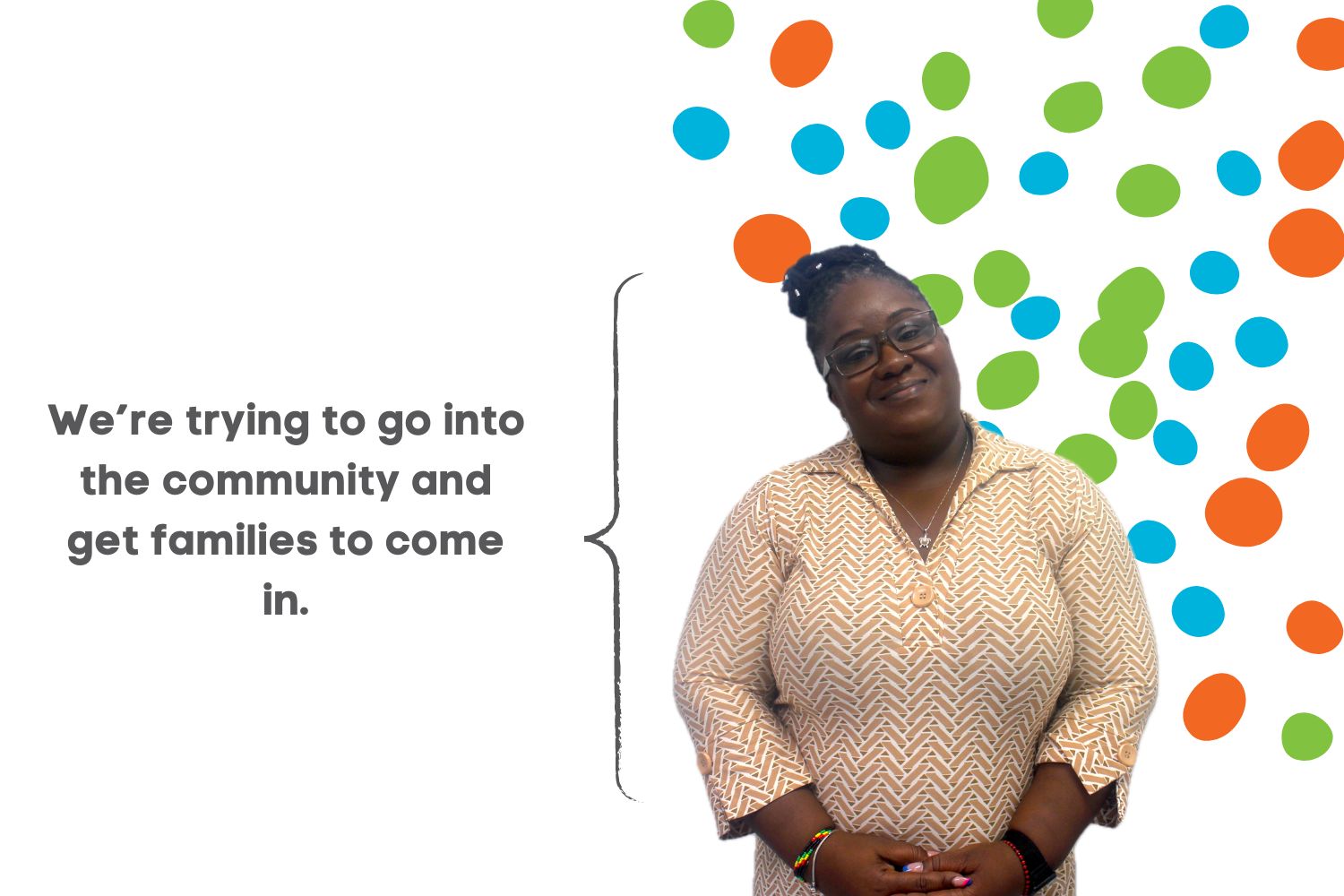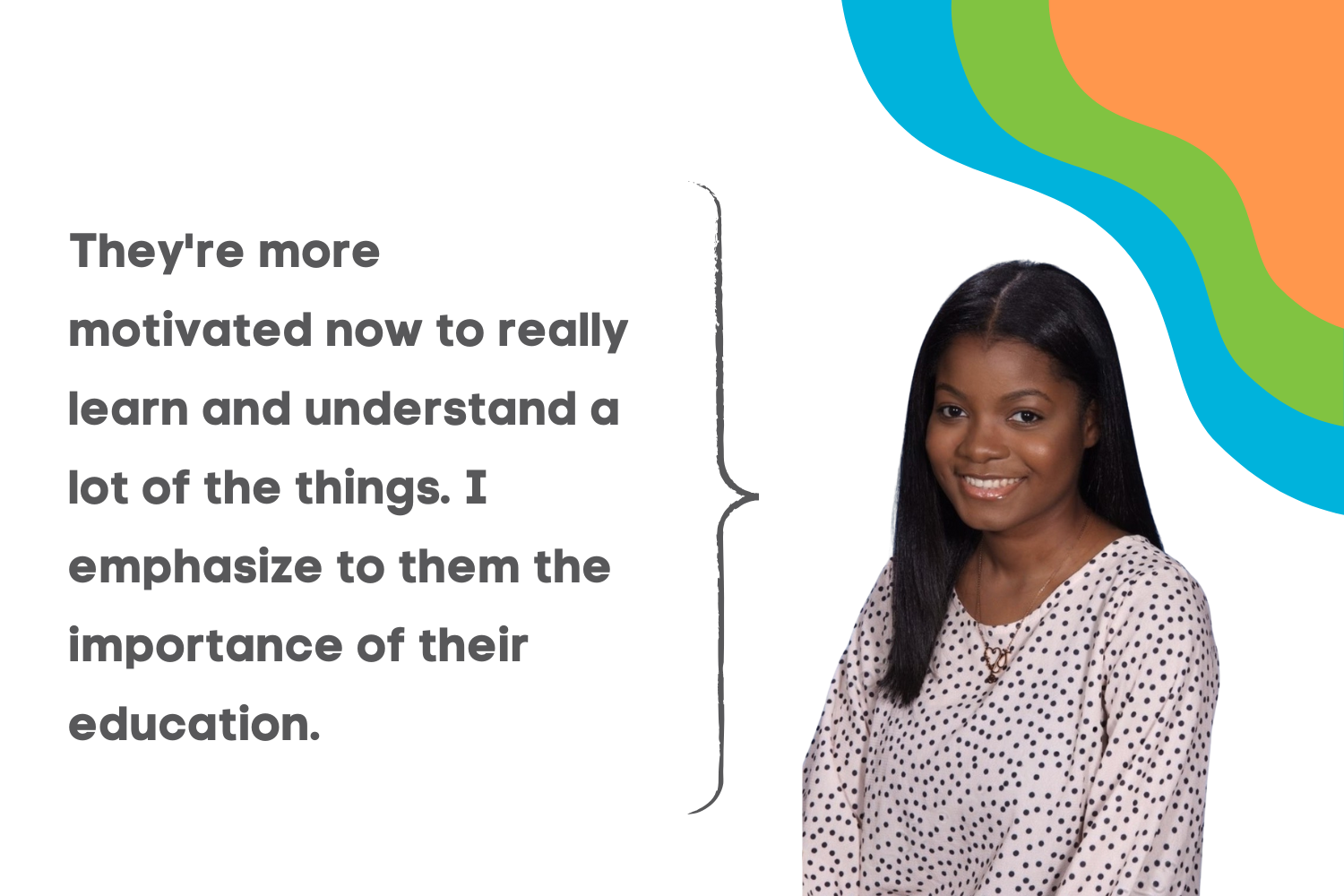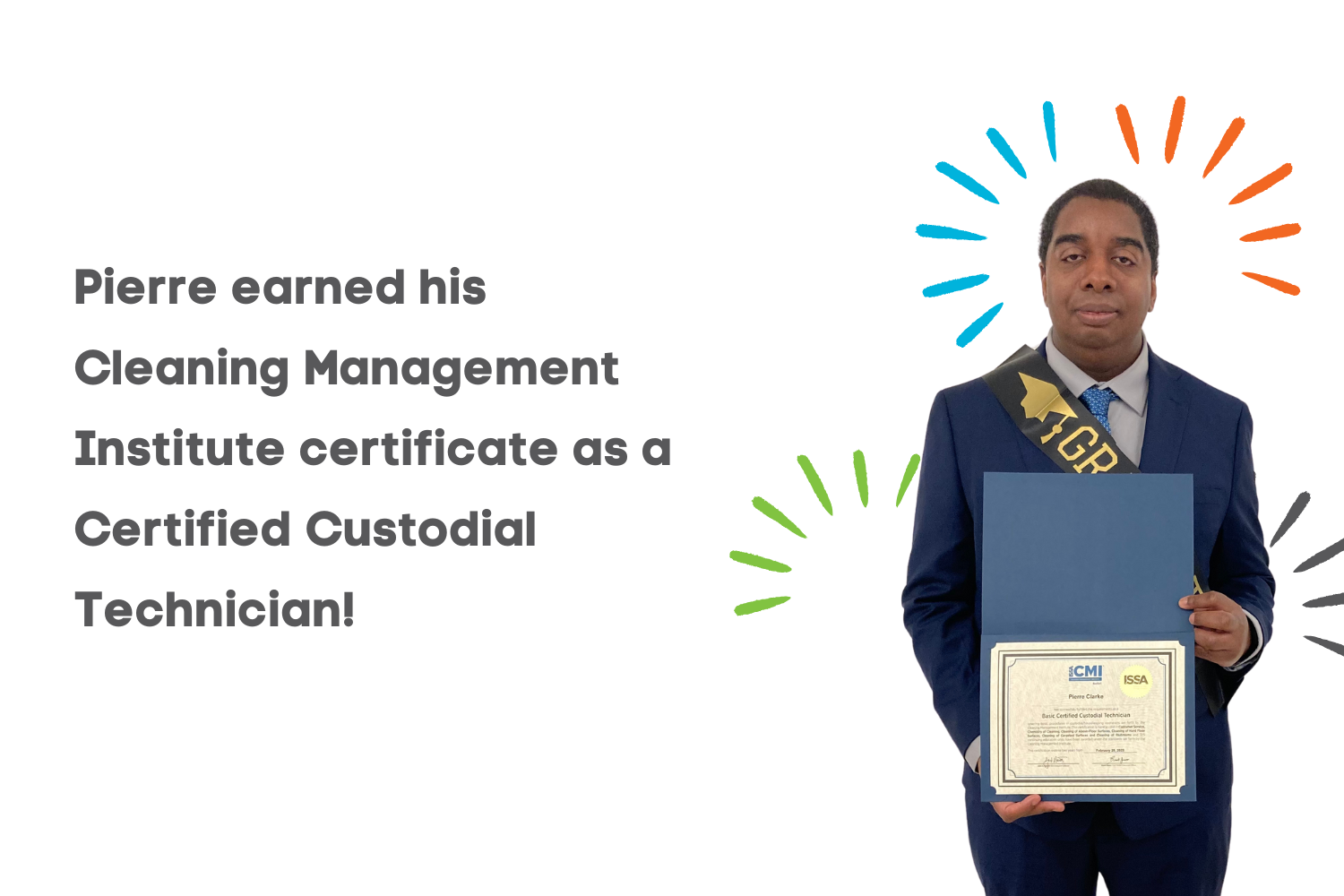Staff Spotlight: Tanika Ogle, Preventive Services

What is your position?
I am currently the Intake coordinator and FTC Facilitator for Preventive Services.
How did you end up at BCS?
I went to Long Island University for Marriage and Family Counseling for my Master’s. While I was there, I met another colleague that worked [at BCS]. I was graduating, looking for a job, but I was having a difficult time and wanted to get my hours and my license. The colleague that worked here at the time–she was a social worker–said, “Tanika, come on.” I was like, “I don’t know; I went to school for therapy, not social work.” But she said they would sign me up to do clinical hours towards my license. So I started here in November 2018 as a social worker, and I was a social worker up until 2021, when I came into this role.
How was your experience as a social worker?
I came from a writing background, and this work is a lot of writing, a lot of documentation of the families you’re working with since we have to submit notes to the Administration for Children’s Services (ACS). It was rewarding. I definitely felt like my clinical skills were being used, like my degree at work. It was nice to get that hands-on, because my internship was private practice. I was learning how to work across the community. And this was my first real job–I had an office!
Did you enjoy working with families and going on visits?
Prior to the pandemic, when I started, a lot of the families were coming to the office. We were still required to make at least one home visit, and if we weren’t able to see them, we would go to the children’s school. But predominantly, the families were coming here. My office was decorated with the kids’ decorations, and it was very family-friendly. It was really nice to connect with people.
Do families usually come from certain neighborhoods?
I would say Brownsville, East New York…so adjacent, close neighborhoods.
What kinds of issues are you helping families work through?
There are usually two types of families that come to Preventive. There are families that are referred to us by ACS when there’s a child welfare issue, either child abuse or neglect of some sort, and then there are families that volunteer and say, “Hey, I need support. I want to do this. Can you advocate for me? Can you get me a bed? Can you get me a voucher? I’m looking for work.”
Since you’ve become Intake Coordinator, what does your day-to-day look like?
I’m usually meeting with ACS, doing the initial visit with the family, or going to the families’ homes for families that want services. I’m doing the background stuff before the cases ultimately pass to the social worker. One part of my job is intake and the other part is conference facilitating, so other than meeting the ACS and getting families to come here, I am also facilitating conferences every three to six to nine months to talk about family strengths and any concerns they have. Then, we create a plan for going forward and how our agency can help them.
It’s about slowing down the process because sometimes–coming week to week–things are happening and, in the conference, we’re kind of just taking a pulse for a moment, like, “Okay, how has it been working with us for the last 45 days? Do you have any concerns? Do you like your worker?” Or, you may have spoken to a social worker, but now you want a broad angle, and we plan for that with a director, supervisor, the case aide, and a social worker.
Did you always know that you wanted to go into this field?
Yes, since undergrad because my Bachelor’s is in Psychology. I just didn’t know what field specifically because it’s so broad with social work. My work experience prior to this was with kids. I was actually a teacher for pre-K, and then fourth and fifth graders. Ultimately, ending here was just a blessing in disguise.
Even though my background is really therapy, I like that I’m learning different networks, socializing with other communities, and doing community outreach as well. We’re trying to go into the community and get families to come in because, ultimately, preventive services are to prevent future ACS involvement and to prevent children being taken away.
What are your favorite aspects of the job?
The flexibility we have. As a mom–I became a mom while working here–I need it because I would love to be available at any time [my son] needs me.
What are the challenges of this kind of work?
I can do things on my own, but sometimes my work is dependent on others. In the beginning, I have to meet with [ACS], speak to them, meet with the family, and then schedule another time to meet with the family to do paperwork. It’s really good if you get it done within a ten-day window. But sometimes it doesn’t happen that way and it takes some time. I have to let my supervisor know and then the social worker might want to meet the family…so you can end up at a standstill. It’s a lot of logistical scheduling and just getting everyone in the right place at the right time.
Was there any particular moment with a family that stood out to you?
There’s one family I met–it was a single mother that was a survivor of domestic violence. She had six kids, and she definitely appreciated the fact that we were able to meet and I took the time and made her feel comfortable. She had a lot of services going on for her family because her children all had some type of mental health diagnosis, so she was taking care of them, making sure they were going to school, dealing with stuff in her home with her landlord. There were mice. There was so much.
When [Preventive Services] meets with families, we slow it down and break it down into smaller steps so it’s more attainable, because you’re going to be overwhelmed regardless. So helping her plan for that–helping her with a safety plan because there was domestic violence with the children’s father–I definitely felt a connection. Even when we ended, it was like she didn’t want to go, and the kids were just so sweet.
Have you noticed any changes in how Preventive Services operates since you first started here?
I have transparent conversations with my supervisor and director if I see hurdles that we need to jump over. If it’s day five and I’ve called and I’ve emailed, I will contact the consultant. And then I’ll get support, like “Okay, let’s do this. All right, maybe we need to try this.” I think before I was kind of afraid to ask for help, but leaning on and having support from my team has definitely made it easier to navigate those different things.
Top Viewed Posts
Youth Art Programs
Program Spotlight: Day Habilitation
BCS Volunteers Spring into Action for Brooklyn

 SUBSCRIBE
SUBSCRIBE 












